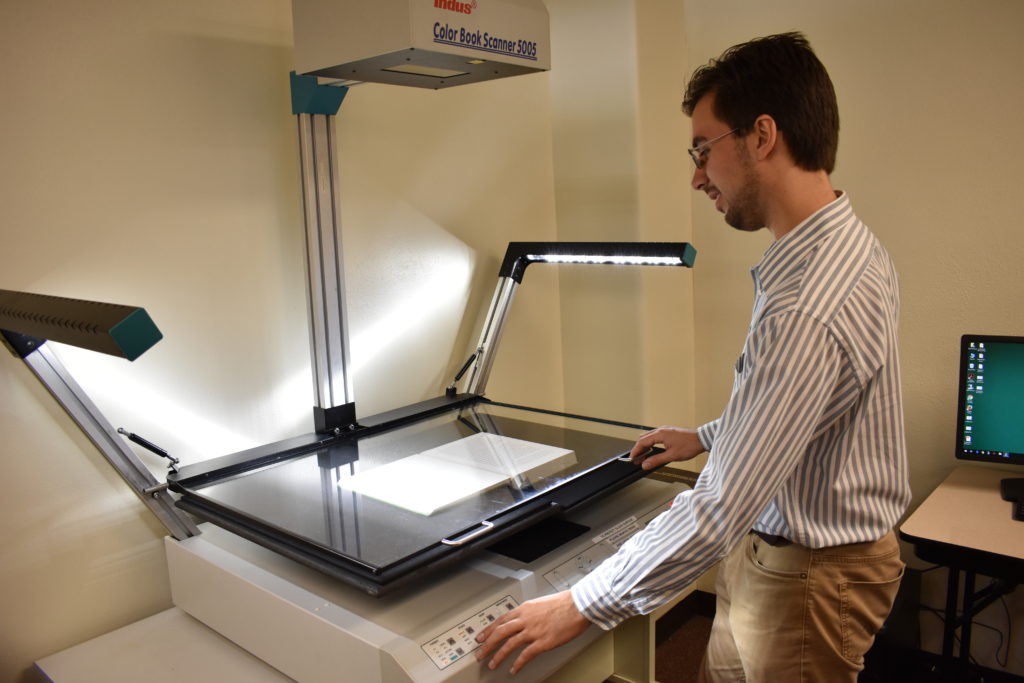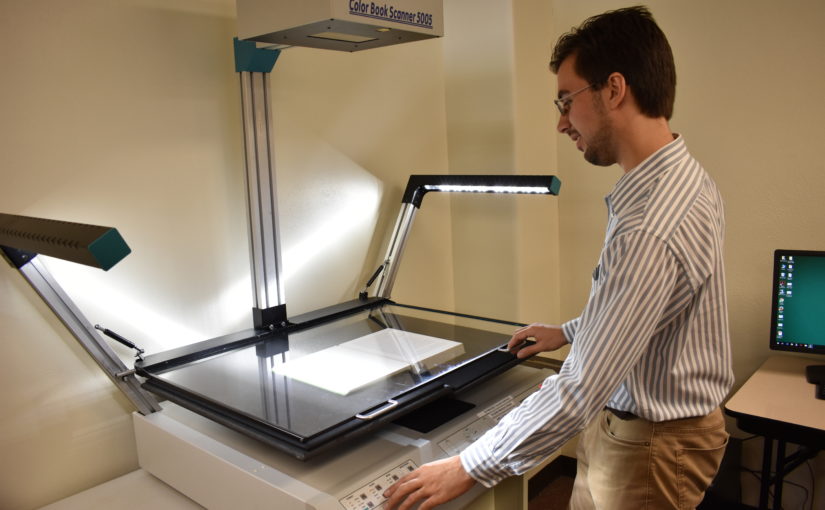
Thousands of pages of student work must be scanned for the online platform.
North Dakota State Libraries and the NDSU Graduate School have partnered to digitize graduate students’ theses and dissertations and make them free and open to the public.
The theses and dissertations of NDSU graduate students were previously available through ProQuest, an online resource for educational institutes and a platform people can purchase a membership.
This project, between the NDSU Libraries and Graduate School, provides open access to people across the globe, according to Danjel Nygard, disquisition processor in the NDSU Graduate School.
Rex Hughes II, metadata and cataloging librarian, described this as “moving out of subscription-based information.” Hughes also said a student’s thesis or dissertation is a product of their time at NDSU, and this digitization project will provide open access and give back to the community.
The project waits on students to have their work reviewed, ensuring it is clean and consistent. Then, once everything is publishable, the work moves to ProQuest and then the NDSU Libraries. The project has meant a lot of collaboration and communication between the library and the Graduate School, according to Nygard.
The libraries are also working toward including video dissertations by Ph.D. students, which NDSU is a leader in throughout the nation, Nygard said.
This can aid in both the ease of finding material for undergraduate researchers and gaining an overview of research by the public, per Hughes.
The files are stored with the most universal document types, generally being PDFs, and videos are MP4s, which can be played on both Macs and PC computers.
The NDSU Library database is approaching 1,700 student works, and there doesn’t appear to be a limit to what may come in the future as server space can be added as demand grows.
However, the project is still a work in progress and adjustment may have to be made. For instance, if the School of Music would like to begin including their works, they may need to use a different platform to stay within a one-gigabyte limit.
One gigabyte is the amount of space each student work is typically allotted.
While more and more works are being published daily, Nygard and Hughes are focusing their attention on scanning works up to 1923 to ensure their preservation forever.
Through this project, the library has received about 16 special requests to view specific theses online, coming from the original writers or family members of former writers.
Nygard expressed his pride in the project, saying that through this project the university’s history is being preserved.
There’s plenty of information to be accessed in NDSU’s history and students’ theses and dissertations alone, such as species discovery, cancer-fighting drugs and much more.
Additionally, if, for whatever reason, a student requests their dissertation is not published to the public, a holding period of up to two years can be applied. This is typically due to further research.
“open access is important for research and democracy,”
-Claudia Tomany, dean of the School of Graduate and Interdisciplinary Studies at NDSU
Claudia Tomany, the oversight person on this project and the dean of the School of Graduate and Interdisciplinary Studies at NDSU, said her interaction with the project was, really, to give it a push and get it started.
She did say that she believes “open access is important for research and democracy,” stating that the library makes that research accessible to the greater public.
Despite the project being in the works for a while, it was not as clear as she thought when she got it rolling, though she is grateful for technology has brought the research out into the open.
Tomany communicated the message to students to “go check it out; be amazed.”
